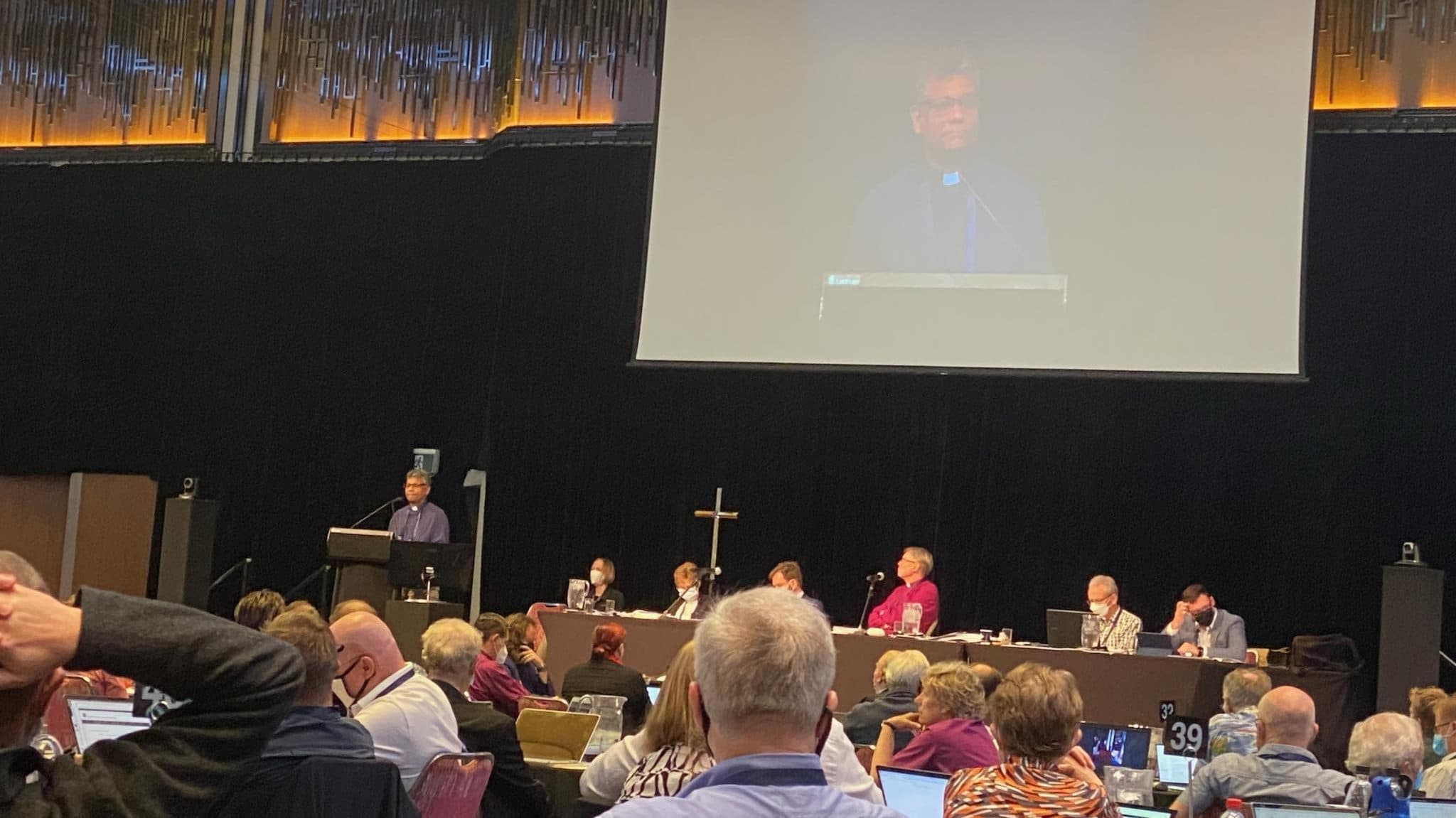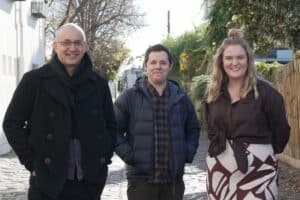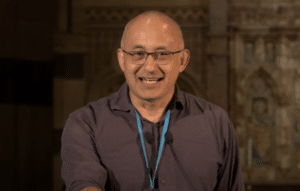
Kirralee Nicolle
11 May 2022
An attempt to affirm marriage within the Anglican Church as the exclusive union of one man and one woman has failed at General Synod.
Synod delegates voted on Wednesday morning against a motion stating that the solemnisation of same-sex marriage was contrary to the teaching of Christ.
The motion was lost after it failed to pass in the House of Bishops, when 12 members voted against the statement and 10 voted to support the motion.
It was the only house in which the statement was not supported.
The motion, in the form of a statement by Sydney Archbishop Kanishka Raffel, sought to define marriage as being solely between a man and a woman.
The motion was seconded by Reverend Natalie Rosner of the Diocese of Melbourne.
Read more: Climate change, viability of regional dioceses are debated
The House of Laity and the House of Clergy voted in favour of the motion.
During the discussion, Archbishop of Melbourne Philip Freier said that the process used to draw a conclusion on this topic had consequences for parishioners, and that the discussion may be better conducted with the oversight of a “small group of people” equipped to handle “all points of view”.
The Reverend Shane Hubner of the Diocese of Melbourne offered a personal reflection as the sibling of two same-sex attracted people.
Mr Hubner said the long-standing view of the Anglican Church of Australia that marriage was between a man and a woman was a “deeply painful” aspect of his work.
Speaking against the motion, The Venerable Tiffany Sparks of Grafton Diocese said that the implications of this motion would have consequences not just for those who were same-sex attracted, but also for women and issues of equality for all, regardless of gender.
The Diocese of Canberra and Goulburn’s Bishop Mark Short countered this view, stating that as an egalitarian he supported the motion by Mr Raffel.
Bishop Short said that he was “proud” to be part of a diocese “which was a pioneer in the ordination of women”.
Both clergy and laity from the Diocese of Sydney spoke in support of the motion, including Dr Barry Newman, the Right Reverend Michael Stead, the Reverend James Warren and the Reverend Canon Craig Roberts.
Mr Roberts stated that he is in fact the father of a same-sex attracted adult, and said that he believed that a move to affirm the statement by Mr Raffel would not “shut down dialogue” with members of the LGBTQIA+ community.
Read more: Synod reaches ‘difficult conversation’ of same-sex marriage | General Synod Day 2
Those expressing their intent to vote against the motion included Bishop Richard Treloar of the Diocese of Gippsland, Mr Richard Connelly of the Diocese of Gippsland House of Laity, and Bishop Garry Weatherill of the Diocese of Ballarat.
The wording of the statement by Mr Raffel included the following:
Pursuant to the authority recognised in s.4 and s.26 of the Constitution to
make statements as to the faith, ritual, ceremonial or discipline of this Church,
and in accordance with the procedures set out in Rule V, the General Synod
hereby states:
1. The faith, ritual, ceremonial and discipline of this Church reflect and
uphold marriage as it was ordained from the beginning, being the
exclusive union of one man and one woman arising from mutual
promises of lifelong faithfulness, which is in accordance with the
teaching of Christ that, “from the beginning the Creator made them
male and female”, and in marriage, “a man will leave his father and
mother and be united to his wife, and the two will become one flesh”
(Matt 19:4-5).
2. The solemnisation of a marriage between a same-sex couple is
contrary to the teaching of Christ and the faith, ritual, ceremonial and/or
discipline of this Church.
3. Any rite or ceremony that purports to bless a same-sex marriage is not
in accordance with the teaching of Christ and the faith, ritual,
ceremonial and/or discipline of this Church.
Mr Raffel said that failing to affirm the statement left the Anglican church in a “perilous position”.
“I deeply regret the outcome, though of course I accept it,” said Mr Raffel.
Read more: Ministry wellbeing and development policies endorsed | General Synod Day 1
Towards the end of the discussion, Australian Primate Archbishop of Adelaide Geoffrey Smith remarked as President that he believed the debate had been conducted in a civil manner.
In the House of Laity, 63 voted in favour of the motion, while 47 laity voted against the motion by Mr Raffel. In the House of Clergy, 70 voted in favour, with 39 voting against.
The debate featured delegates from both clergy and laity of the dioceses of Melbourne, Sydney, Grafton, Gippsland, Ballarat, Brisbane and Canberra and Goulburn.
For more faith news, follow The Melbourne Anglican on Facebook, Twitter, or subscribe to our weekly emails.







One Response